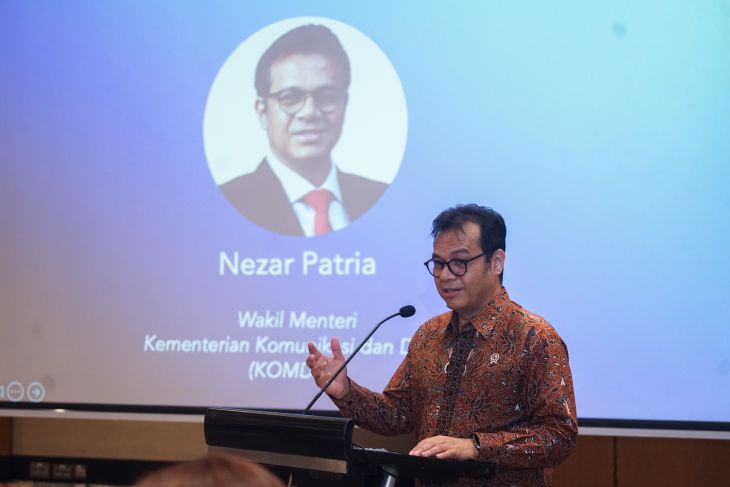Indonesia prepared to drive ASEAN digital economy leadership

Jakarta (ANTARA) - Deputy Minister of Communication and Digital Nezar Patria emphasized Indonesia's commitment and readiness to become a leader in ASEAN's digital economic growth through regional collaboration and by strengthening the ethics of developing artificial intelligence (AI).
He noted that Indonesia plays an important role in the ASEAN digital ecosystem, with a population of 280 million people, or around 40 percent of the ASEAN population, and makes a substantial contribution to the region's digital economy.
"The McKinsey report estimates that ASEAN's digital economy will reach US$1 trillion in 2030, with US$366 billion expected to come from Indonesia," Patria stated at the 2025 Indonesia Strategic Engagement Workshop Series organized by the US-ASEAN Business Council in Central Jakarta on Tuesday.
To advance the digital economy, the Indonesian government aims not only to increase technology adoption but also to become a strategic player at the global level, particularly by developing AI as a key emerging technology.
To achieve this, Indonesia has prepared digital infrastructure and established regulations to serve as ethical guidelines for AI development.
Currently, internet penetration in Indonesia has reached up to 80 percent, a significant increase from under 70 percent five years ago.
However, the government continues to face several infrastructure challenges, including the need to accelerate the transition to 5G networks.
"Currently, 97 percent of Indonesia's residential areas are covered by 4G technology. However, we are now moving towards 5G," he affirmed.
To address these needs, the Communication and Information Ministry is building adequate infrastructure, ensuring good governance, and prioritizing sustainability, inclusivity, and public trust.
Regarding AI regulations, Patria explained that Indonesia has completed the Readiness Assessment Methodology for AI (RAM-AI), becoming the first ASEAN country to finalize the document.
"RAM-AI is useful to show the readiness level for artificial intelligence technology adoption in Indonesia. Other countries, such as Malaysia, even use our documents as comparative material," he remarked.
The Indonesian government also applies more flexible and innovation-friendly ethical standards for AI development.
"Ethics regulate more adaptive basic norms to innovation, as long as they remain in line with global ethical principles," he noted.
He expressed hope that this forum will encourage an exchange of views, discuss current challenges, and develop a collaborative framework between the government and industry players.
"We hope this discussion will elaborate on the necessary regulations and discuss current issues," he stated.





